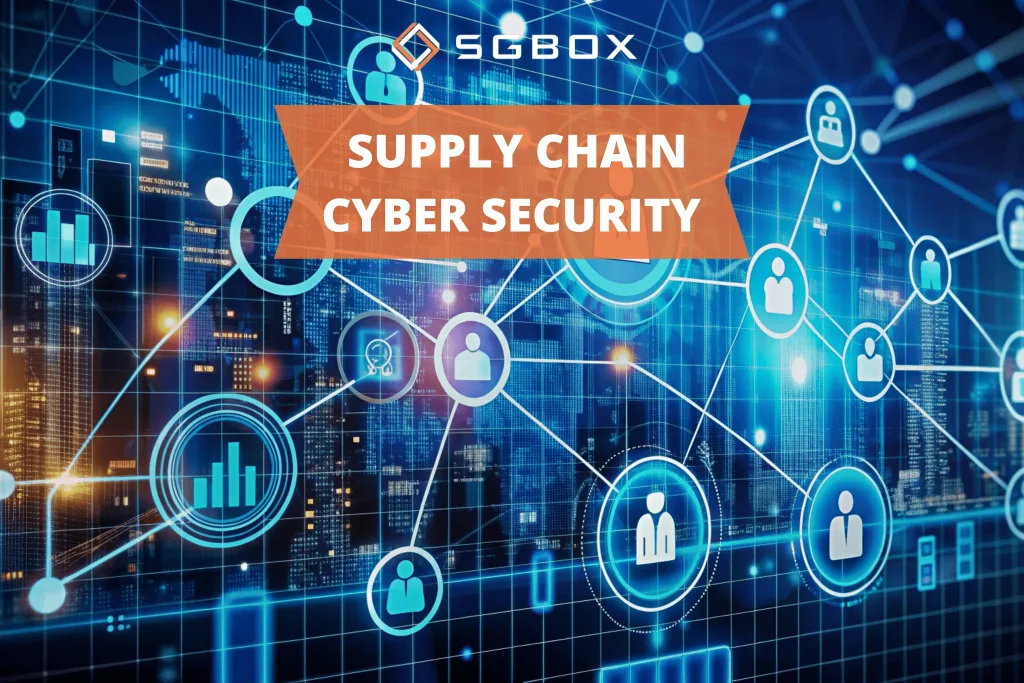Supply Chain Cyber Security: how to defend your company

In recent years, supply chain cyber security has become a major concern for companies, especially small and medium-sized enterprises (SMEs).
Supply chain cyberattacks are on the rise and can cause severe economic and reputational damage.
But what exactly are these attacks, and how can you defend your company?
What is a Supply Chain cyberattack?
A supply chain cyberattack occurs when cybercriminals exploit a vulnerability within a company’s supply chain to gain access to its systems, data, or resources.
In other words, rather than targeting the main company directly, hackers prefer to attack a supplier, partner, or subcontractor with weaker security measures.
Once this link in the chain is compromised, criminals can use that access to infiltrate the main company.
For example, a software provider distributing insecure updates can be used as a vehicle to spread malware into its customers’ systems.
This type of attack is particularly insidious because it can go unnoticed for months, while the damage continues to grow.
What are the weak points and risks?
Modern supply chains are complex and involve multiple suppliers, partners, and subcontractors.
Every connection between your company and another is a potential vulnerability.
Here are the main weak points:
- Third parties with inadequate security measures: not all companies within the supply chain have the same level of cybersecurity protection. A small supplier with outdated systems can become the entry point for an attack that ultimately affects your company.
- Insecure software and hardware: companies depend on software and hardware provided by third parties, but if these are not updated or contain security flaws, they can become vehicles for cyberattacks. Think of software updates containing vulnerabilities that hackers exploit.
- Uncontrolled access to sensitive data: companies often grant critical information access to third parties without proper control or monitoring. This can exponentially increase the risk.
- Poor employee awareness and training: even the employees of partner companies pose a risk. If they are not adequately trained in cybersecurity practices, they may unknowingly open the door to attacks by clicking on malicious links or using weak passwords.
These attacks carry significant risks: theft of sensitive data, loss of customer trust, economic damage due to operational disruptions, legal and regulatory penalties, and severe reputational harm.
How to protect against Supply Chain attacks
Fortunately, effective strategies exist to reduce the risk of supply chain attacks.
Here are some of the most important measures that SMEs should adopt:
- Supply chain risk assessment and management: companies should conduct a thorough risk assessment of their suppliers’ and partners’ cybersecurity. It’s crucial to identify the most critical suppliers and those who have access to sensitive data. Once identified, measures must be implemented to manage and mitigate risks.
- Ongoing supplier monitoring: it’s not enough to verify a supplier’s security at the time of the initial agreement. It is essential to regularly monitor their compliance with security standards. This can be done through periodic audits, security assessments, and requests for updates on the measures in place.
- Security contracts: when signing contracts with suppliers and partners, ensure they include clear clauses regarding cybersecurity. These contracts should specify minimum security measures, data management protocols, and the reporting of any security breaches.
- Data encryption and segmentation: another key practice is encrypting sensitive data and limiting access to such information only to individuals and suppliers who truly need it. Additionally, segmenting corporate networks can reduce damage in the event a system is compromised.
- Employee training: employees, both within your company and those of suppliers, must be properly trained to recognize and respond to cyberattacks. Promoting a culture of cybersecurity within the company is essential to preventing attacks.
NIS2 Directive and Supply Chain
The growing threat of supply chain cyberattacks has led to stricter regulations at the European level.
A key example is the new NIS2 Directive, an update to the previous NIS (Network and Information Security) Directive, which introduces stricter security requirements for critical infrastructure and companies operating in key sectors.
NIS2 also applies to supply chain cybersecurity, imposing more stringent obligations on companies regarding information protection and supplier risk management.
Among the requirements are the obligation to adopt adequate measures to manage security risks and the duty to report any cybersecurity incidents.
For SMEs, complying with the NIS2 Directive means adopting stronger security practices, such as continuous supplier assessments, implementing incident response plans, and regularly updating security technologies.

